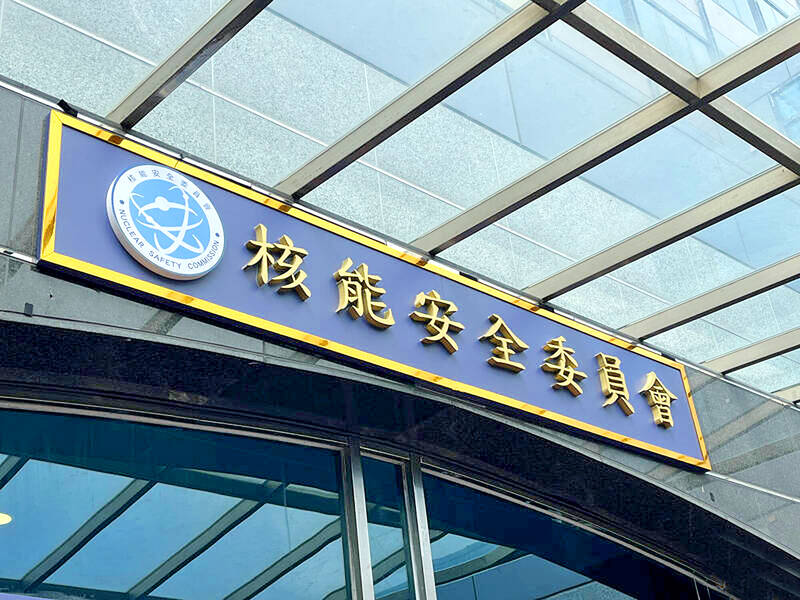CATCHING UP:
As demand for nuclear energy specialists has declined, the nuclear research agency would send researchers to the US, Europe and Japan to study
The Nuclear Safety Commission (NSC) plans to launch a four-year project to develop small modular reactor (SMR) and micro modular reactor technologies, an official familiar with the matter said.
Before the four-year project, which is estimated to cost NT$800 million (US$26.45 million), the commission would spend NT$100 million next year to fund a research project on SMRs and establish the capacity to review applications for building SMRs, the official said.
The plan was unveiled after the referendum last month on whether to reactivate the Ma-anshan Nuclear Power Plant in Pingtung County failed.

Photo: Taipei Times
Although the number of votes in favor did not reach the threshold for approval, the “yes” votes outnumbered “no” votes in every locality. In Hengchun Township (恆春), where the plant is located, 60 percent of those who voted approved the proposal.
President William Lai (賴清德) also ordered Taiwan Power Co (台電) to begin safety inspections at the plant after the referendum, adding that the government does not exclude the possibility of developing new-generation nuclear energy technology.
The official said that the project, which would be executed by the National Atomic Research Institute, would focus on the research on low-carbon and high energy density SMRs.
Key tasks to be accomplished through the project include introducing technology of building SMRs domestically at the initial phase, providing the technology and legal framework for new-generation nuclear energy policy, establishing the capacity to review applications for building SMRs, forming a national team to develop SMRs and reducing the time required to build SMRs, they said.
The nation’s demand for nuclear energy specialists has decreased due to the “nuclear-free homeland” policy. As such, the institute plans to send researchers to national nuclear energy laboratories in Europe, North America and Japan to engage in short-term research or internships, or take nuclear engineering courses at prestigious universities, the official said.
Meanwhile, the institute would recruit international specialists or Taiwanese doing nuclear energy research overseas to help bring in the most advanced nuclear technology and work with local nuclear power specialists, they said.
Regarding the possibility of allowing the private sector or academic institutions to build new-generation nuclear reactors, the commission said that the US, the UK and Japan have invested in related studies, but none has achieved commercial operational capability.
In the US, regulatory standards for the new reactor types are still being drafted, it added.
“We will closely monitor international developments in regulatory frameworks,” it said.